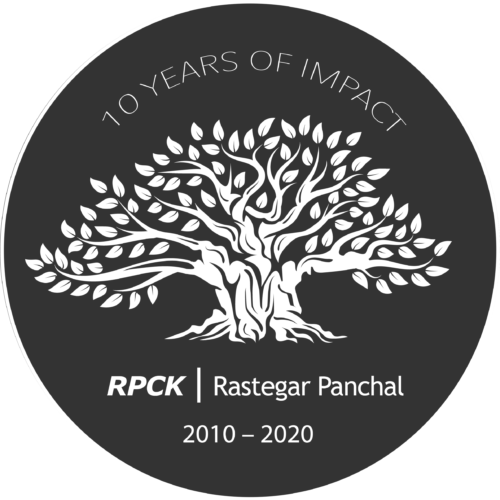RPCK was founded on the idea that business could be harnessed as a force for progress, and that there was a place for a law firm dedicated to working with visionaries looking to accomplish difficult and worthwhile things under this thesis. That idea turns 10 years old this month, and I’ve had an opportunity to reflect on a decade’s worth of experience in the impact investing space. We will continue commenting on ideas, successes and failures we observe as the intentional investing space continues to grow and develop.
Impact is broadly accepted now, but contrary to popular thinking, it’s still a fragile idea.
When folks like Imprint Capital, Acumen, Village Capital and other early visionaries started in this space, the debate was primarily centered around whether impact was a serious discipline, whether this was merely philanthropy or simply a less lucrative way of investing. That question still comes up, but much less frequently. With TPG, KKR and Blackrock launching “impact” products and thousands of other funds, managers, entrepreneurs and advisors entering the impact economy, the dominant question these days is who is really doing impact, and how are they measuring their results. We’ve come a long way, and the pendulum is swinging a bit in the other direction – there is a lot of confusion around what social impact is now that everyone is seemingly doing it. Folks used to talk about the future when it wouldn’t be “impact” investing any more, it would just be “investing.” I think that rather than visionary impact investors convincing the rest of the investing world that this is a better, more thoughtful, intentional and risk protective wayof deploying capital, the real danger is a world where significant demand on the buy side for real impact attracts interest from every corner of the investing industry, each with their own “impact” products, and little in common across them. The ultimate danger is that instead of all investing truly being “impactful” (i.e. intentionally and verifiably multiple bottom line) impact doesn’t really mean much of anything anymore.
Traditional categories are blurring as barriers are being challenged.
The original paradigm has been that commerce and philanthropy are two distinct and generally incompatible worlds, and the tax, legal and regulatory regimes have been built up over decades around this notion, crystallizing an otherwise unsupported dichotomy – that business had to be amoral and that philanthropy could not be commercially minded. Leading foundations and impact investors have been challenging these notions for many years and building this new economy where it makes good business sense to invest in solutions, or to consider the effects of business practices on stakeholders including employees, consumers, the community and the environment. Foundations have increasingly come to embrace the notion that deploying certain portions of their capital can be made more effective and even more sustainable by utilizing private investment structures rather than grants. And perhaps the most significant development has been the rise of so-called “blended finance” – an approach to deal making that brings together investors with different risk and reward expectations within the same deal structure or financing round. Impact is the common linkthat has made these deals possible, and successful.
Investing in solutions to big challenges was a good idea all along.
Impact investing is simply investing. The focus of those investments is informed by the desire to take advantage of an opportunity, which in this case, is an opportunity to address a significant issue affecting many people. Such issues can range from carbon emissions to environmental pollution to access to healthcare or electricity or water, or quality education. These may be considered “good” and generally categorized together, but each deal and transaction is a complex and unique, with a highly specific set of circumstances that drive risk and return expectations. The common element is simply that there is a clear and stated intention to drive impact outcomes through these investments, and in our experience the deals that build this intention into the structure have been the ones that have consistent realized such returns.
Recognizing real but often overlooked risks inherent in climate change, human rights and good governance was also a good idea, all along.
Good, strong fundamental diligence has always been fundamental to smart investing. Investors have recognized that threats to the performance of their investments come from fields beyond the traditional financial or operational realms. They come in the form of, among other things, climate change, consumer preferences for sustainability, scandal in an increasingly transparent and viral social media environment, in enforcement of ever-increasingly broad reaching anti-corruption legislation. Generally, such concerns comprise the categories of [E] environment, [S] social, and [G] good governance focused investing. Moreover, it has been my experience that the companies that recognize the forces that these concerns play upon their business tend to be more resilient, and resilience speaks to the heart of being able to succeed in an ever changing environment.
When I embarked upon this journey 10 years ago, I had not heard of impact investing or socially responsible investing. I have been fortunate, however, to have had the ability to learn from as well as advise, represent and guide some of the most innovative and visionary investors and entrepreneurs in the world. This has been an amazing education, and as we have the privilege of taking our knowledge and experience forward into a new decade, I am filled with hope, excitement and a healthy dose of skepticism.
– Chintan Panchal

